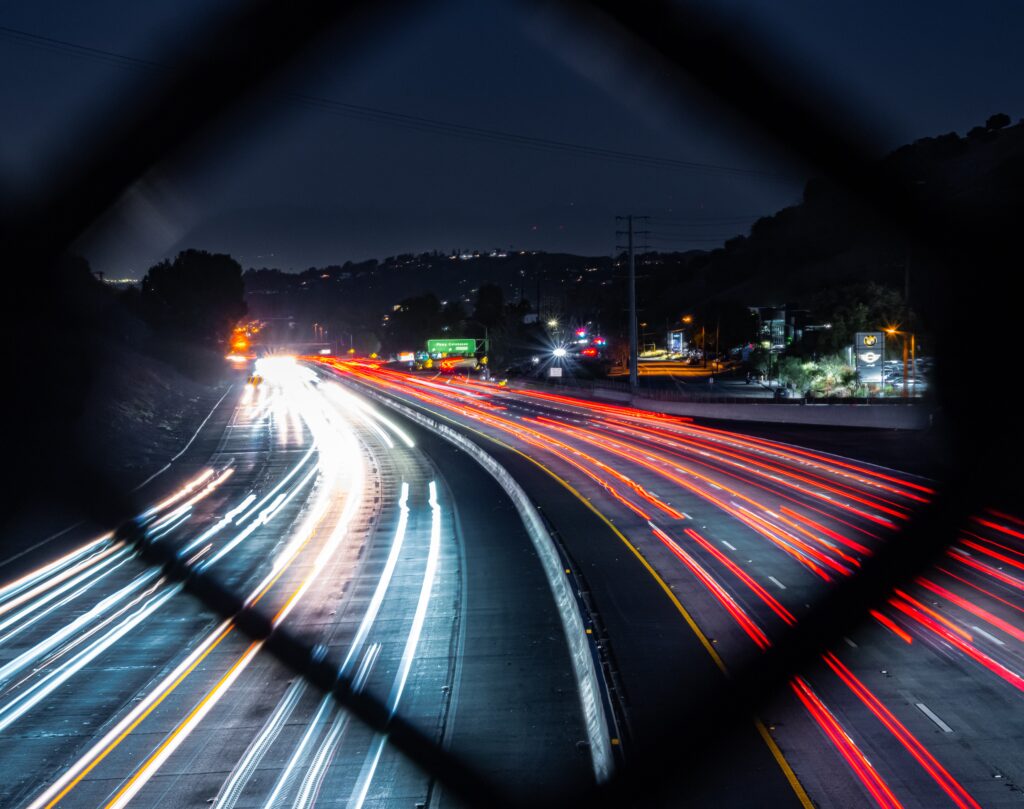Parallax: if you stare at the moon and close one eye and then the other, the moon will move, flickering back and forth in your vision. I know this will happen with other objects but I have only ever done it with the moon. An hour south of Roanoke, traffic creeps to a standstill. My GPS directs me to exit the highway. I don’t know if there’s a word for the way the interference of a window screen and other lights fragment the image of the moon: the real moon, outside, and then two translucent reflections in the glass. I remember my mom lifting me up so we could watch a lunar eclipse out the window. I didn’t understand what an eclipse was, so I fixated on those hazy half-reflections. Late at night, I’m waiting for an open table in a crowded Denny’s. The interstate still a river of red brake lights, everyone making their way back up the coast from whatever spot in the path of the solar eclipse they managed to find. Once in college I laid flat on my back on the pavement outside my dorm staring at a streetlight. Later I wrote bad poetry about how I couldn’t see the moon past the glare of it. At the counter of the Denny’s I talk to a long-haired guy in sandals and his girlfriend with a nose piercing. They were in Kentucky. I tell them I was in Georgia, 97% totality. Wide-eyed, maybe stoned or maybe just amazed by the universe, he asks, “What did that feel like?” I’m exhausted and sunburnt and I know he wants something metaphysical. “Cold,” I say. We put a thermometer in the driveway, watched the temperature drop. “And flat. All the shadows were gone.”
—
Photography by: Tyler Clemmensen
